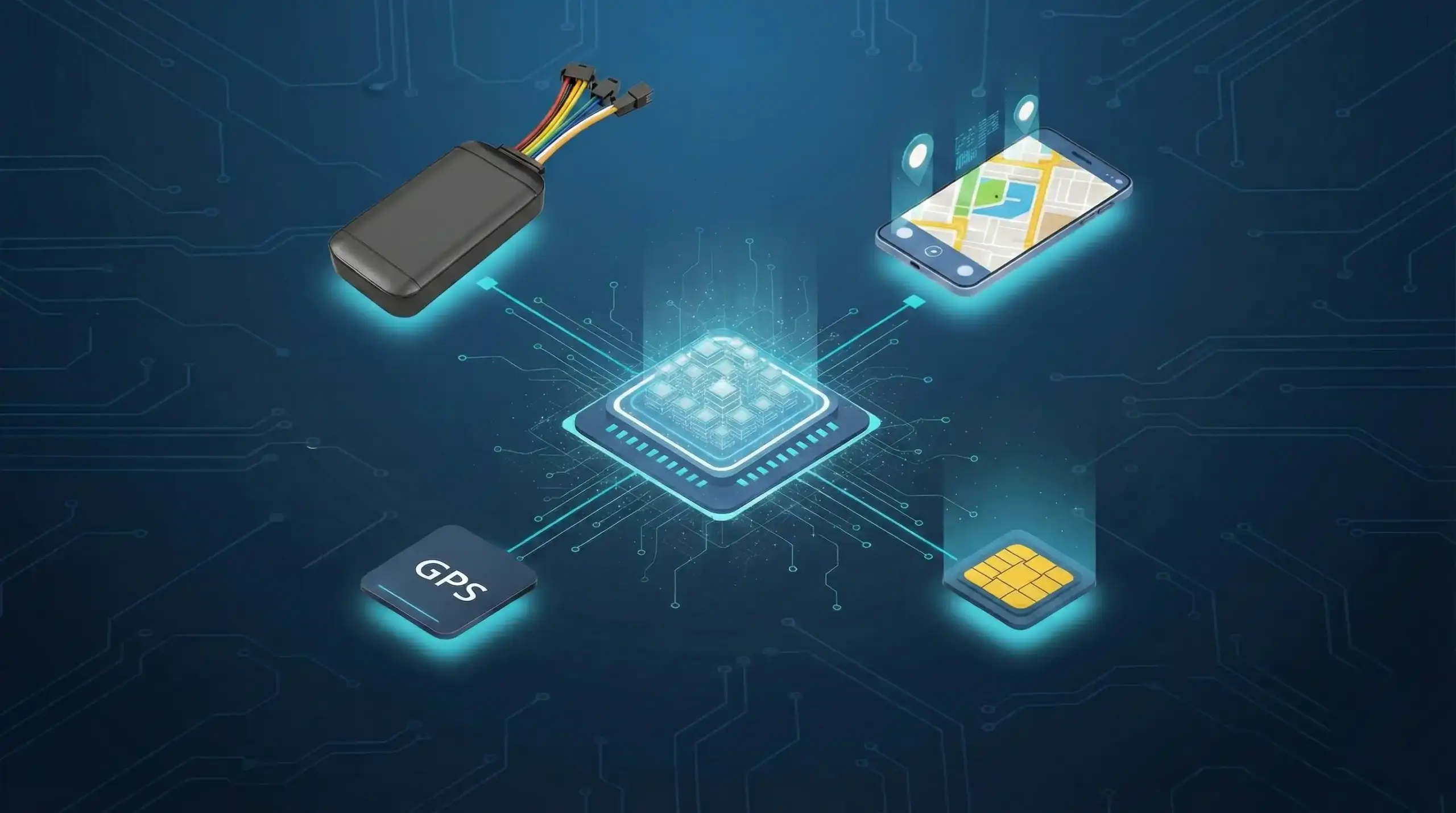Intro to GPS Systems and Their Development
Sistema de colocação global (GPS) technology has become an essential section of modern life, providing critical navigating and location-based solutions throughout various industries. Initially developed by the Unified Specifies Division of Protection in the 1970s, GPS was designed to improve military abilities by enabling precise place monitoring and navigating. Este sistema, based upon a constellation of satellites orbiting the Planet, transfers indicates that are received by GPS devices to determine exact geographic settings.
Inicialmente, GPS technology was limited to military applications, offering improved functional effectiveness and tactical benefits. No entanto, Nos anos 80, os EUA. federal government made GPS available for private use, noting the beginning of its extensive fostering. The precision of the system was at first limited for private users because of careful accessibility, a function that intentionally degraded the general public indicate. Isso mudou no ano 2000 when careful accessibility was ceased, significantly improving the accuracy of GPS for all users.
The development of GPS technology was marked by continuous developments that have made it more accurate, confiável, e acessível. Sistemas GPS modernos, como o rastreador GPS Suracy, take advantage of developments in satellite technology, indicate processing, and integration with various other sensing units to deliver real-time, highly accurate place information. These developments have extended the energy of GPS much past navigating, including applications in logistics, agricultura, and individual safety, significantly helping in vehicle anti burglary initiatives.
Among one of the most considerable developments in GPS technology is the integration of GPS with telematics systems, como o sistema GPS Surack365. This combination has allowed performances like live monitoring, Otimização do caminho, and chauffeur habits monitoring, which are crucial for improving roadway safety. By providing real-time information and understandings, these systems help in production informed choices that can prevent accidents and improve overall traffic management. The addition of an immobilizer component further boosts security. These features make it an ideal vehicle tracker device.
The trip of GPS from an armed forces development to a foundation of private life highlights its transformative impact. With each technical jump, GPS systems have become more advanced and essential, laying the groundwork for their critical role in preventing roadway accidents and improving safety on our roadways. They also add significantly to vehicle anti burglary efforts.
How GPS Systems Improve Chauffeur Understanding and Navigating
In the world of roadway safety, GPS systems have become essential devices for improving chauffeur understanding and navigating. Among one of the most noteworthy features of modern GPS systems, como o rastreador de GPS Salpack, is the arrangement of real-time traffic updates. These updates permit drivers to create informed choices about their routes, avoiding congested locations that could lead to hold-ups or accidents. By receiving recent information on traffic problems, drivers can change their routes proactively, decreasing the possibility of stress-induced mistakes that often outcome in accidents. This is especially useful for a vehicle tracker device.
Another critical feature is path optimization. Sistemas GPS, consisting of the Protrack365 GPS system, use advanced formulas to determine one of the most efficient routes based upon present traffic problems, fechamentos de estradas, and various other variables. This not just ensures a quicker trip but also reduces the moment invested when driving, thereby decreasing direct exposure to potential hazards. Path optimization is especially beneficial for drivers browsing through unknown areas, where the risk of obtaining shed or experiencing unexpected challenges is greater. These systems also offer solid vehicle anti burglary abilities.
Risk notices are an additional improvement provided by GPS systems. These notices alert drivers to potential dangers such as roadway building, acidentes, or serious weather. By receiving prompt cautions, Os motoristas podem tomar as precauções necessárias, such as decreasing speed or choosing an alternative path. This feature significantly adds to roadway safety by enabling drivers to expect and react to potential hazards before they become impending risks. Coupled with an immobilizer component, it offers extensive protection.
Real-world instances show the effectiveness of these features. Para circunstâncias, a study including a fleet of delivery vehicles equipped with Protrack GPS trackers revealed a significant decrease in accidents. The real-time traffic updates and path optimization features allowed drivers to avoid high-risk locations and maintain efficient, rotas seguras. De forma similar, risk notices assisted them browse securely through unfavorable problems, further underscoring the role of GPS systems in preventing roadway accidents. For durable security, consider a hard-wired immobilizer component together with the vehicle tracker device.
Para concluir, a integração de atualizações de tráfego em tempo real, Otimização do caminho, and risk notices in GPS systems significantly improves chauffeur understanding and navigating. These features jointly add to a much safer driving experience, eventually assisting to prevent roadway accidents, and improving vehicle anti burglary measures with an immobilizer component.
Impact of GPS on Emergency situation Reaction and Mishap Avoidance
The integration of GPS technology into emergency situation reaction structures has significantly improved the effectiveness and effectiveness of mishap management. Utilizando sistemas como o sistema GPS Protrack365, emergency situation -responders can quickly locate mishap websites, decreasing reaction times and possibly conserving lives. The accuracy of GPS information allows send off centers to relay exact locations to ambulances, authorities, and fire solutions, ensuring that help gets to the mishap website as quickly as feasible. This also functions as a solid vehicle anti burglary deterrent.
Além disso, GPS systems provide critical information that’s important throughout emergency situations. Para circunstâncias, the Protrack GPS tracker can transmit real-time information on the vehicle’s speed, instruções, and the seriousness of the collision. This information helps emergency situation -responders evaluate the circumstance more accurately and prepare appropriate clinical and logistical responses before showing up on the scene. In circumstances where every second matters, this advanced prep work can make a considerable distinction in the result for mishap sufferers. The presence of an immobilizer component can also prevent further problems throughout or after an event. This makes a consolidated system an outstanding vehicle tracker device.
Past immediate reaction, GPS technology plays a crucial role in mishap avoidance. Anticipating analytics, powered by information gathered from systems like the Protrack365 GPS, are used to determine patterns and trends in traffic events. Ao avaliar esta informação, authorities can identify accident-prone locations and times, enabling them to implement targeted precautionary measures. These measures may consist of enhanced authorities presence, improved roadway signs, or public understanding projects concentrated on high-risk habits.
Além disso, the information produced by GPS trackers can be used to improve roadway safety through facilities improvements. Por exemplo, if a particular extend of roadway is often associated with accidents, city coordinators and designers might consider redesigning that section to improve safety. Por isso, the continuous comments loophole of information collection and evaluation facilitated by GPS systems contributes in production long-lasting improvements to roadway safety. This information is also important for understanding vehicle anti burglary patterns and improving security.
Para concluir, the role of GPS technology in emergency situation reaction and mishap avoidance can’t be overemphasized. Systems like the Protrack365 GPS not just aid in providing immediate, life-saving assistance but also add to the wider objective of decreasing roadway accidents through data-driven understandings and tactical treatments. Such systems, particularly when combined with an immobilizer component, offer durable vehicle anti burglary protection and function as a dependable vehicle tracker device.
Future Trends and Developments in GPS Technology for Roadway Safety
The future of GPS technology promises considerable developments that could further reinforce roadway safety. Among one of the most noteworthy trends is the integration of GPS systems with self-governing vehicles. As self-driving technology acquires energy, the consolidation of advanced GPS systems, como o rastreador de GPS Salpack, será crucial. These systems can provide real-time place monitoring, Otimização do caminho, and risk discovery, thereby improving the overall safety and effectiveness of self-governing vehicles when driving. They are also important for vehicle anti burglary in these advanced vehicles.
Another promising development is the use improved anticipating analytics. By leveraging vast quantities of information gathered from various resources, GPS systems can anticipate potential hazards and provide very early cautions to drivers. Por exemplo, Protrack365 GPS System utilizes advanced formulas to analyze traffic patterns, clima, and roadway problems, offering valuable understandings that can help prevent accidents before they occur. Esses sistemas, especially with an incorporated immobilizer component, offer superior protection.
Improved real-time information sharing is also readied to transform roadway safety. Modern GPS systems are progressively qualified of sharing information with various other vehicles and facilities, producing a connected community that facilitates safer driving. Para circunstâncias, vehicles equipped with Protrack GPS Tracker can communicate with each various other to share information about unexpected quits, traffic jam, or dangerous roadway problems, enabling drivers to create informed choices and avoid potential accidents. This is especially beneficial for a vehicle tracker device fleet.
No entanto, these developments come with their own set of challenges and ethical factors to consider. The integration of GPS technology with self-governing vehicles increases questions about information personal privacy and security. Ensuring that delicate information is protected from cyber risks is critical. Além disso, the reliance on anticipating analytics and real-time information sharing requires durable and dependable information resources to avoid inaccuracies that could lead to safety dangers. The role of an immobilizer component in mitigating some of these dangers is also crucial.
Apesar desses desafios, the future of GPS technology in roadway safety is undeniably promising. As developments proceed to unravel, systems like the Protrack365 GPS System will play a critical role in production our roadways safer and more efficient, further improving vehicle anti burglary measures and sealing its condition as a prominent vehicle tracker device with a sophisticated immobilizer component.









